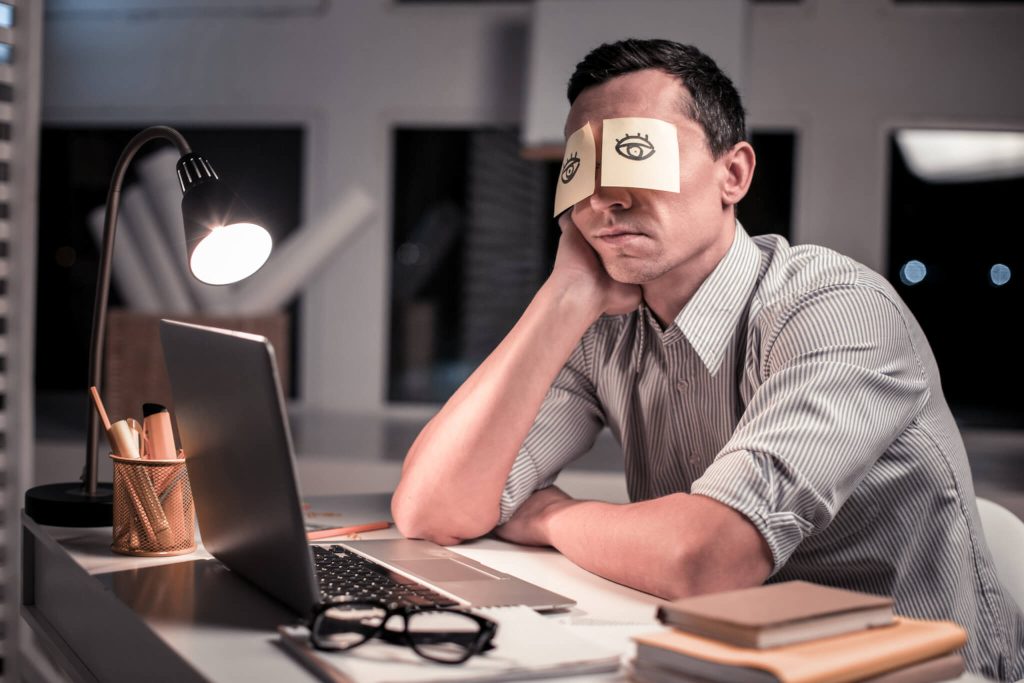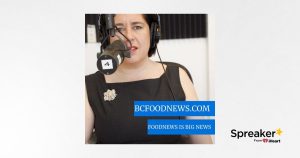

Man bored at work (© Viacheslav Lakobchuk – stock.adobe.com)
NEW YORK — Dreaming of white sand beaches while staring at spreadsheets? You’re not alone. A revealing new survey shows that 70% of Americans mentally clock out and enter “vacation mode” a full three days before they actually depart—a psychological head start that might explain why your coworker seems increasingly distracted as their time off approaches.
According to research conducted by Talker Research and commissioned by CheapCaribbean, more than half (59%) of Americans are already mentally “out of office” before they even write that automated email response. For the 47% of employed respondents who admit they struggle to focus before vacation, this pre-trip mental drift represents a common workplace phenomenon that employers might want to note.
This widespread experience of checking out early comes amid troubling signs of workplace fatigue—a substantial 75% of workers reported recently experiencing mental fog at work, suggesting many Americans are operating at diminished capacity due to burnout.
“Taking time off to relax and recharge is so important,” said Dana Studebaker, Vice President of Marketing, Consumer Brands, CheapCaribbean. “Whether it’s lounging on a beach or exploring a new destination, vacations let you reset and come back with a fresh perspective.”


The survey identified clear warning signs that signal when time off is desperately needed. Feeling burnt out led the list (62%), followed by catching yourself daydreaming about escaping (45%) and becoming irritable with others (44%). Physical symptoms also emerged as key indicators, with 39% reporting persistent fatigue regardless of sleep duration and 35% experiencing low energy even during weekends.
Don’t Forget To Pack The Vacation Essentials!
This mental departure before physical departure has practical consequences—particularly when it comes to packing. Phone chargers top the list of most commonly forgotten items (28%), followed by toothbrushes and toothpaste (24%), headphones or earbuds (19%), and sunglasses (18%). Sunscreen completes the top five at 18%, suggesting many travelers arrive at sunny destinations unprepared for UV exposure.
The preparation sweet spot appears to be balanced—respondents indicated their ideal pre-trip planning involves an even split between spontaneity and organization. Yet while 45% of Americans prefer spontaneous trips, they still need roughly three days to prepare adequately.
Budget concerns emerged as the top pre-trip worry (54%), with packing stress affecting 28% of respondents and hotel booking worries troubling 17%. Overall, more than a quarter (28%) of Americans feel anxious about trip planning.
Not everyone requires extensive preparation—36% can be “trip ready” within a day or less, while an impressive 16% need just a few hours to prepare, pointing to varying levels of travel readiness across the population.
Simply Making Plans To Travel Boosts Happiness
The survey uncovered a compelling finding about the psychological benefits of having travel plans. One-third of respondents currently have a trip booked, while 31% admit to daily vacation daydreaming. This anticipation appears beneficial—87% acknowledged that having an upcoming vacation helps their mental well-being.
This benefit was quantified on a 10-point happiness scale, where those with travel plans reported significantly higher happiness levels (7.6) compared to those without trips booked (6.8).
“It’s clear that simply having a vacation on the calendar has a positive impact on people’s overall happiness,” added Michael Lowery, Head of Global Consumer Business at CheapCaribbean. “And a sense of anticipation and the knowledge that relaxation is to come can really make a difference day to day.”
Beyond the top five signs of vacation need, the survey identified additional indicators including brain fog (35%), completely forgetting tasks (17%), misplacing items (14%), making mistakes at work (8%), and checking emails during off-hours (7%).
The survey’s additional commonly forgotten items included body care products (17%), power adapters (16%), hairbrushes (15%), skincare products (15%), and hand sanitizer (14%).
I’d be happy to suggest a simple mindfulness breathing technique for combating “vacationitis” at work! Here’s one that’s easy to practice at your desk:
Fight ‘Vacationitis’ With the 4-7-8 Focus Reset
Can’t focus on your work because you’re so excited for that upcoming trip? Here’s a simple exercise you can do right at your desk to reset and get back on track.
- Find a comfortable position in your chair, with feet flat on the floor and hands resting in your lap or on your desk
- Close your eyes or soften your gaze on a fixed point to reduce visual distractions
- Breathe in quietly through your nose for 4 seconds, feeling your lungs fill completely with air
- Hold your breath for 7 seconds, allowing tension to dissolve in your body
- Exhale slowly through your mouth for 8 seconds, making a gentle whooshing sound if comfortable
- Repeat this cycle 3-4 times (about 2 minutes total)
The beauty of this technique is its simplicity – the counting gives your mind something to focus on besides vacation daydreams, while the extended exhale activates your parasympathetic nervous system, which helps reduce stress and improve concentration.
When your mind starts drifting to beach scenes instead of spreadsheets, this quick reset can help bring you back to the present moment, making those final days before vacation more productive while still preserving your excitement for the upcoming break.
Survey Methodology
Talker Research surveyed 2,000 Americans between February 19-21, 2025. The survey was commissioned by CheapCaribbean and conducted online. Researchers used two main sources: traditional online access panels with opt-in incentives and programmatic sources offering virtual incentives for participation. Those not fitting the sample requirements were excluded.
Dynamic online sampling adjusted targeting to achieve specified quotas. The survey was conducted in English, with points awarded for completion having small cash-equivalent value. Analysis required a minimum of 80 respondents per cell, with statistical significance at the 95% level. Quality control measures excluded speeders, inappropriate responses, bots, and duplicate participants. The survey was limited to those with internet access, potentially affecting generalizability.







